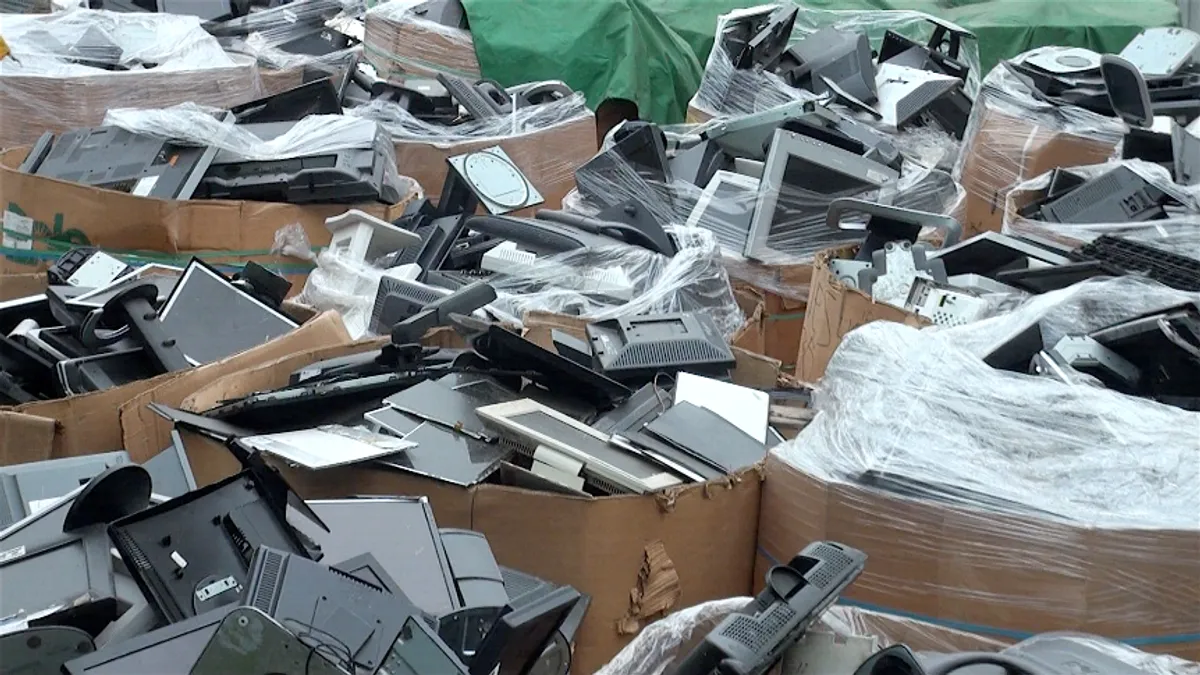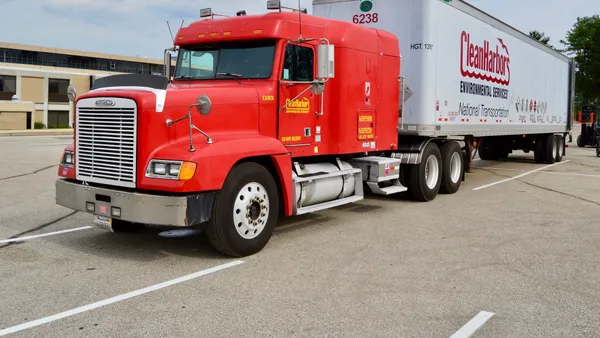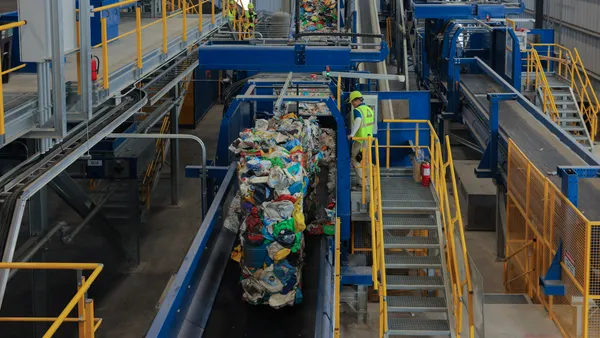Dive Brief:
- Electronic devices are already being collected and stored for processing ahead of Hong Kong’s new Waste Electrical and Electronic Equipment Treatment and Recycling Facility (WEEETRF) opening next year, as reported by the South China Morning Post. ALBA IWS, part of the German ALBA Group, is under contract with Hong Kong's government to build and operate the facility until at least 2027.
- Devices will be collected and sorted at five regional centers — with eight additional satellite collection centers — before being sent to the WEEETRF. Covered devices will include air conditioners, refrigerators, washing machines, televisions, computers, printers, scanners and monitors.
- This facility, located in the Tuen Mun EcoPark, will have up to 30,000 metric tons of annual capacity with the potential to expand. ALBA IWS says the facility will have an 85% recovery rate with a range of markets for recovered materials. Modern processing technology will be used to handle hazardous material such as mercury, lead from cathode ray tubes and refrigerants.
Dive Insight:
An estimated 70,000 metric tons of electronic waste is disposed of in Hong Kong each year and about 80% of that is sent to parts of Africa or Southeast Asia for further processing. In an effort to reduce the amount of hazardous material being recycled and disposed of locally, new legislation has been passed to more closely regulate the industry. In addition to the construction of the WEEETRF system the government will also require distributors and importers to pay a portion of the recycling costs.
The New Territories, where this facility is being constructed, have gained a reputation for hosting unregulated, dangerous recycling operations. Hong Kong's Environmental Protection Department found large quantities of hazardous waste this fall in an effort called Operation Dawn. The U.S.-based Basel Action Network has also been tracking devices to unregulated facilities in this area for years and is stepping up its GPS tracking program to obtain more detailed information about export operations.
Once operational, this new facility and collection hub could serve as a model for the electronics recycling industry in Hong Kong and other areas that continue to face criticism for questionable environmental practices. It will also provide new options for recyclers in the U.S. to export their devices, though could possibly affect prices due to the higher operating costs that come with higher standards.













